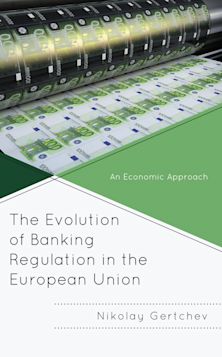The Seen, the Unseen, and the Unrealized
How Regulations Affect Our Everyday Lives
The Seen, the Unseen, and the Unrealized
How Regulations Affect Our Everyday Lives
This product is usually dispatched within 1 week
- Delivery and returns info
-
Free CA delivery on orders $40 or over
Description
This book illuminates the real effects of regulations on people’s everyday lives. It traces the effects of regulations on an economy by working through the ripple effects of changes. In so doing, the book provides a fundamental understanding for the economy as an organism rather than a machine, and enlightens the reader by offering a model for understanding the economy and market. Regulations, which are restrictions placed on the working of the economy, have consequences, both intended and unintended, direct and indirect. While the direct effects are well understood, the indirect effects are often overlooked because they don’t fit with the machine understanding of an economy. More to the point, this book emphasizes the real effects of regulation and market change on individual actors, thereby stressing how the economy works to provide an individual with the options that exist in choice situations. We draft a new definition of prosperity and well-being which focuses on the individual’s access to valuable alternatives. From this point of view, the real implications of regulation are traced step by step, following the logic of exchange and the effects on individual actors rather than the economy as a whole.
Table of Contents
Chapter 2 The Price is Right
Chapter 3 What Prices Communicate
Chapter 4 Unbeatable, Imperfect Markets
Chapter 5 The Seen and the Unseen
Chapter 6 The Market and Natural Disasters
Chapter 7 Taxation and Regulation
Chapter 8 Attempts to Perfect the Market
Chapter 9 The Unrealized
Chapter 10 Implications for our View of Society
Product details
| Published | Aug 03 2016 |
|---|---|
| Format | Hardback |
| Edition | 1st |
| Extent | 192 |
| ISBN | 9780739194577 |
| Imprint | Lexington Books |
| Dimensions | 238 x 157 mm |
| Series | Capitalist Thought: Studies in Philosophy, Politics, and Economics |
| Publisher | Bloomsbury Publishing |
Reviews

ONLINE RESOURCES
Bloomsbury Collections
This book is available on Bloomsbury Collections where your library has access.


































